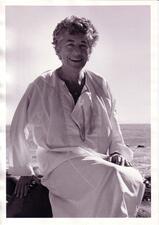Performing Arts
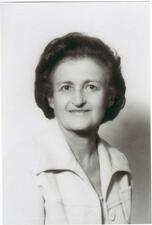
Johanna Spector
Johanna Spector was an influential ethnomusicologist whose writings, recordings, and film projects documented the music of little-studied Jewish communities from around the world. After surviving the Holocaust, Spector earned her doctorate, founded the ethnomusicology department at the Jewish Theological Seminary, established the Society for the Preservation of Samaritan Culture, and served as president of the Asian Music Society.

Regina Spektor
Phyllis Spira
As a young dancer at the Royal Ballet School in London, Phyllis Spira was on the brink of a successful career abroad, but in 1965 she returned to her home in South Africa and became the country's prima ballerina. Spira was awarded the Nederburg Prize for ballet in 1972 and 1979. Her most notable achievement was perhaps leading “Dance For All,” a program to provide disadvantaged students opportunities to dance.

Viola Spolin

Ethel Stark
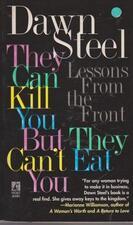
Dawn Steel
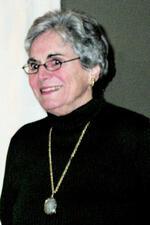
Shirley Cohen Steinberg

Madame Goldye Steiner, aka Gladys Mae Sellers
Madame Goldye Steiner was the first known African-American woman singer of khazones, or Ashkenazi Jewish liturgical music. She was the only known African-American woman in the khaznte artistic movement in which non-synagogue audiences experienced khazones, sung by women in concert halls, on the radio, and on gramophone recordings.
Jewish Gender Stereotypes in the United States
Stereotypes of Jews have existed from their arrival in the New World to the present. Jews were portrayed as greedy, unscrupulous, and unrefined. However, Jews also created stereotypes about one another based on class, gender, and religion. Specifically, the Ghetto Girl, Jewish Mother, JAP, and others reflected tensions between genders about the place of Jews in the economy and culture.
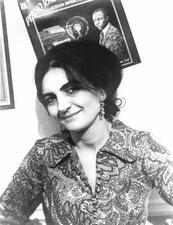
Teresa Sterne
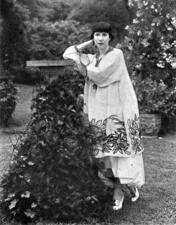
Florine Stettheimer
Florine Stettheimer's paintings are lively, diarylike accounts of her life and acute examinations of upper-class ways in New York between the wars. Her decorative style offered an alternative to prevailing modes of contemporary modernist painting. Through her work, she criticized the high-mindedness of modern art and the course of modern life.

Hanna Stiebel
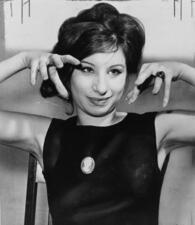
Barbra Streisand

Rivka Sturman
Sara Sugarman
Sara Sugarman is a Welsh-born movie director and actor, who made her mark as a small-screen performer before stepping behind the camera to direct international award-winning movies with a Welsh twist.
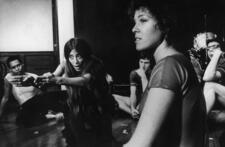
Elizabeth Swados
Elizabeth (Liz) Swados was an American composer, writer, and theatrical director. Best known for her 1978 Broadway musical, Runaways, Swados created a diverse body of work that included novels, poetry, plays, music, and musicals.
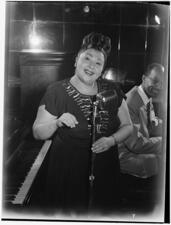
Sylvia Blagman Syms
Sylvia Blagman Syms was a gifted jazz singer who earned praise from Billie Holliday, Frank Sinatra, and Duke Ellington. In 1949, she was discovered by Mae West, who became a significant teacher and influence on Syms’s intimate storytelling performing style. Sym’s went on to record fifteen major albums and tour the United States and World before dying of a heart attack.
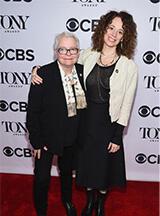
Rebecca Taichman
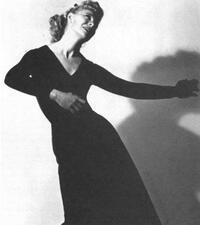
Helen Tamiris

Helen Tanzer
Helen Tanzer was an educator and translator in the early twentieth century. Contributing to the dissemination of classical and archaeological works, Tanzer well fulfilled the rigorous requirements of scholar and teacher.

Sydney Taylor
Sydney Taylor as the author of the beloved All-of-a-Kind Family chapter book series, about five memorable and distinctive sisters growing up in a warm and loving Jewish household in early twentieth-century New York.
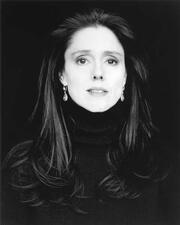
Julie Taymor
Julie Taymor is an award-winning theater, opera, and film director best known for being the first woman to win a Tony Award for directing a Broadway Musical: The Lion King.
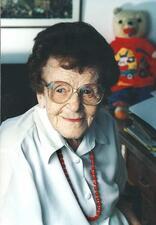
Yemima Tchernovitz-Avidar

Television in the United States
Jewish women have had a long-standing, complex, often fraught relation to American television. They have had to battle a male-dominated production system and sexist stereotypes, but also have seen significant advances, in front of and behind the screen, resulting from the cable and streaming revolutions and third-wave feminist activism.
